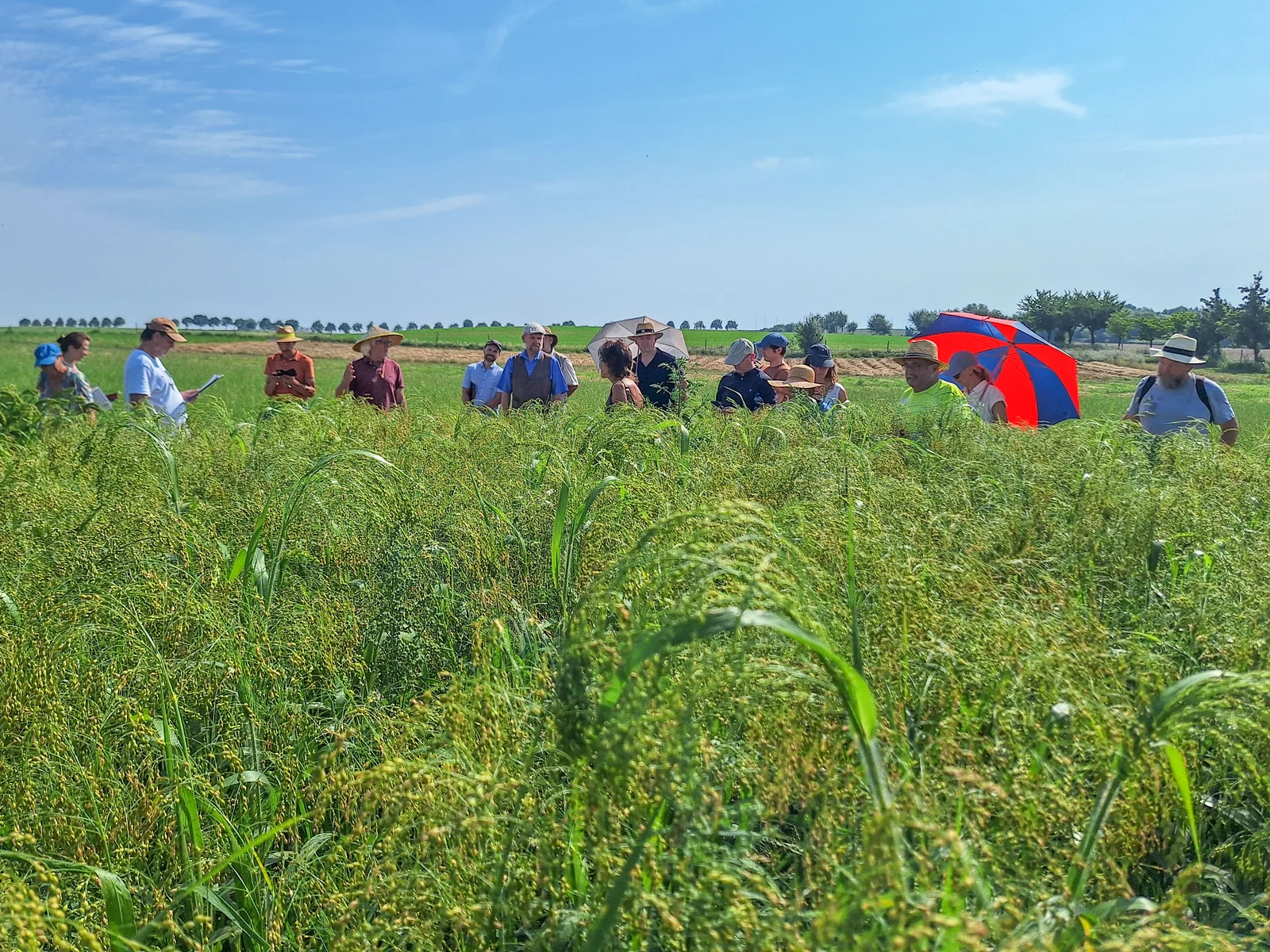Millet – from Birdseed to Superfood: Field Day and Future Dialogue in Wilmersdorf
What potential does millet hold as a crop of the future in Brandenburg—whether for animal feed, human nutrition, or as part of climate adaptation in agriculture? This question was at the heart of a recent field day and future-focused dialogue held at the Wilmersdorf Teaching and Research Station, part of the Eberswalde University for Sustainable Development (HNEE). Under peak summer conditions, farmers, processors, and researchers gathered to explore both the opportunities and challenges of cultivating millet in the region.

On the station’s trial plots, the event showcased 44 different millet varieties, ranging from compact 50-centimetre plants to towering 2.5-metre types, with a colourful spectrum of seed heads from yellow-green to deep reddish-brown. A series of expert talks addressed key topics such as variety selection, crop rotation, soil preparation, pest management, and processing. Attendees were also invited to taste a wide array of millet-based products—from porridge and pasta to biscuits and savoury snacks.
Millet is one of the oldest cultivated plants in the world, and features in traditional stories and fairy tales such as “Sweet Porridge” and “The Land of Plenty”. Now, it's enjoying a resurgence thanks to its remarkable characteristics: it's naturally gluten-free, rich in vitamins and minerals, and highly climate-resilient. Compared to more common cereals, millet requires significantly less water, tolerates extended dry spells, and improves soil structure through its deep root systems. It is also relatively resistant to disease and pests.
Although annual per capita consumption in Germany remains low at 300 to 500 grams, millet products such as flakes, plant-based milk, and noodles are increasingly found in organic food shops. A recent example of regional value creation is the founding of Spreewälder BioMühle in 2024, which now partners with five local farms and two major wholesalers to promote millet as a sustainable food for the future in Brandenburg.
The event was jointly organised by HNEE, the Association for the Conservation and Recultivation of Cultivated Plants (VERN), the Institute for Food and Environmental Research (ILU), and the Julius Kühn Institute (JKI) – the German Federal Research Centre for Cultivated Plants.